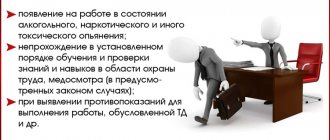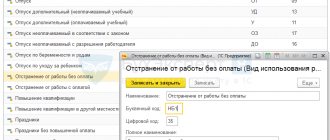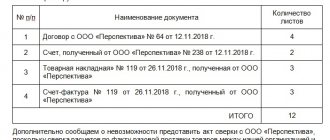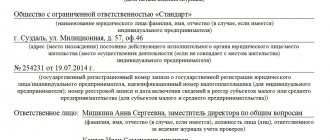Removal as a measure of procedural coercion
Temporary removal from office may be a special measure of procedural coercion. It can be applied to employees of various organizations or even government employees. In this case, the procedure has the following features:
- this measure is used in criminal and administrative proceedings;
- it is a repressive method of coercion;
- to use it, you need not only a decision made by the investigator or operative, but also a court decision;
- the removal from office of generals or governors can be carried out on the basis of a decision made by the President;
- this process consists in the fact that a person cannot continue to cope with his work responsibilities, therefore he loses his earnings;
- compensation is a special benefit offered by the state and equal to the minimum subsistence level established in a particular region;
- This benefit is paid every month until the restriction is lifted.
This measure applies only to people who occupy high positions. This is due to the fact that during the implementation of their work duties they have the opportunity to abuse power. For example, there is never any dismissal of any cashier or just an ordinary salesperson. Therefore, this coercive measure applies only to people vested with a certain amount of power. For example, in history there are cases of the President being removed from office by other persons or the entire people.
Filled in from memory
The decision to temporarily suspend him for the duration of the investigation of the criminal case was made on March 12 by the Basmanny Court at the request of the Main Investigation Department of the Investigative Committee of the Russian Federation. From now on, instead of a senator’s salary, Arashukov should receive only an allowance in the amount of the subsistence minimum.
However, the mandate of the youngest member of the Federation Council, 32-year-old Rauf Arashukov, is still formally retained. By law, he can lose his mandate only after a court verdict in his case.
Last week, the chairman of the Federation Council commission for monitoring the reliability of information on the income and property of senators, vice-speaker Yuri Vorobyov, said that the upper chamber would decide in May whether to deprive Arashukov of his powers due to a declaration that was not submitted on time. The young senator was the only one who did not manage to submit the declaration on time.
“According to the law, this is a very strict norm. If a member of the Federation Council or State Duma deputy does not submit information on income in a timely manner - before April 1, he is deprived of his status. But this decision can only be made at a plenary meeting of the Federation Council. Our commission must prepare this decision and report to the plenary meeting all the circumstances of the case,” Vorobiev said.
According to lawyer Rauf Arashukov, he sent the declaration to the Federation Council at the end of March
According to him, the timing of the commission’s preparation of recommendations to the chamber on this issue depends on how quickly the working group receives Arashukov’s explanations and analyzes the situation and all documents. Yuri Vorobyov said that he sent a letter to Arashukov asking him to explain why he did not submit the declaration on time.
In turn, lawyer Anna Stavitskaya told news agencies that Arashukov had previously contacted the Federation Council with a request to send him a 2-NDFL certificate to fill out a declaration, but when he never received a response, he sent from the pre-trial detention center approximate information from memory about his income.
According to Stavitskaya, Arashukov sent the declaration within the period established by law, but it is unknown when the administration of the Lefortovo pre-trial detention center sent it.
According to the investigation, the removed senator may be involved in the murders of the deputy chairman of the public youth movement “Adyge-Khase” of the Karachay-Cherkess Republic, Aslan Zhukov, and the adviser to the President of Karachay-Cherkessia, Fral Shebzukhov, as well as the beating of a witness to the murder of Zhukov. In addition, the investigation believes that Rauf Arashukov was part of a criminal community organized by his father Raul Arashukov. The elder Arashukov is accused of organizing a criminal community and embezzling from Gazprom in the amount of more than 30 billion rubles. At the moment, in addition to the senior and junior Arashukovs, seven more defendants have been arrested in this case. These are their relatives and friends who ran gas companies.
*This is an expanded version of the text published in the issue of “RG”
Reasons for the removal of employees in labor relations
The grounds for removal from office can be presented in the following forms:
- the head of the company is deprived of his powers as part of the bankruptcy procedure when a temporary manager is appointed to manage the organization;
- an employee who can no longer cope with his duties due to his health condition is initially removed from his position and then transferred to a new place of work;
- a procedure is used in relation to employees who come to the workplace in a state of intoxication, which may be alcohol or drugs;
- Specialists who do not have the necessary knowledge in the field of labor protection are not allowed to work;
- in some situations, employees who, for various reasons, refused to undergo a medical or psychological examination are suspended from work;
- specialists who lose the right to perform any specific type of work are removed from work.
In some situations, even in the absence of the need to cope with his work responsibilities, the citizen retains his average earnings, since the corresponding decision is made by the head of the organization.
If removal from a position is carried out through the fault of a direct hired specialist, then he loses not only the right to work, but also his official earnings.
Removal from position or work
Removal from office - this term implies that the employee ceases to perform his duties at the request of the employer. Such a measure is a temporary solution, followed by either the continuation of the employment relationship or the dismissal of the employee.
The basis for such a decision by the employer may be the employee’s actions (committed or intended), force majeure circumstances or the lack of necessary knowledge, skills and documents.
In most cases, suspension should not exceed two months and end when the reason for preventing the employee from performing duties is eliminated. The employer, at his discretion, may extend this period for another month. At the end of this period, if the reason has not been eliminated, then it is necessary to decide on the continuation of the employment relationship or dismissal.
The Labor Code of the Russian Federation does not, as such, contain a list of grounds for removing employees from office.
This term is replaced in labor legislation by the reasons why an employer can remove personnel from work (Article 76):
- appearing in a state of intoxication;
- lack of instruction on health and safety;
- failure to undergo a medical examination in a timely manner;
- presence of contraindications to work due to health status;
- lack of necessary permits, licenses or special rights;
- the need to comply with the requirements of regulatory and other agencies, as well as court decisions.
However, other laws interpret these reasons for removal from work as justification for removing employees from their positions. Thus, the law on civil service (No. 79-FZ) directly states that intoxication, failure to undergo training on labor protection, or the requirement of any government agency are grounds for removing a civil servant from office.
Employees of law enforcement agencies can also demand temporary suspension (Code of Criminal Procedure of the Russian Federation, Art. 114), if they have reasonable suspicions that the accused in a criminal case, while continuing to perform official duties, will destroy evidence or interfere with the investigation. This temporary ban is formalized by a court order, which the employer is obliged to comply with.
The arbitration court may remove the heads of bankrupt companies from their positions if they do not comply with the requirements of bankruptcy legislation, interfere with the activities of the manager, or their actions damage the property of the company or the interests of creditors.
The absence of a special right or the expiration of its validity period becomes a reason for removal from office only in the case where it is impossible to perform official duties without this document.
For example, the traffic police confiscating a sales manager’s driver’s license will not have a critical impact on his job responsibilities. He can also visit the company’s counterparties by taxi or official transport. But for the driver, performing work without permission to drive the car becomes impossible.
Features of the process under Art. 114 Code of Criminal Procedure
Most often, removal from office is carried out as part of a criminal case. In this case, the initiator of the process is representatives of government authorities. The main purpose of the procedure is to terminate the work of a specialist who abuses his powers, violating the requirements of the law.
Basic information about how the accused is removed from office is contained in Art. 114 Code of Criminal Procedure. The process can be carried out even as part of a preliminary investigation of a criminal case. The petition may be submitted by an inquiry officer or an investigator. To do this, you will first have to obtain permission from the head of the organization, if he is not the accused, and you also need the consent of the prosecutor.
The judge makes a decision regarding the removal of the manager from office within two days. If this decision is positive, then the corresponding resolution is sent to the company where the suspect works. Not only a judge, but even an investigator can cancel this document if at a certain point in time the need for this measure disappears.
If it is necessary to remove any official from a constituent entity of Russia from office, then this person must actually be accused of a serious crime. First, the Prosecutor General of the Russian Federation will have to send a special letter to the President. It is he who makes the final decision within two days.
Commentary on Article 114 of the Code of Criminal Procedure of the Russian Federation
1. Removal from office is a preventive and enforcement measure of procedural coercion, the content of which is to temporarily prevent the accused or suspect from performing his work duties in order to prevent his attempts to obstruct the proceedings or the execution of the sentence.
2. Removal from office is applied if there are general conditions for the action of procedural coercive measures (see com. to Art. 111, 97).
3. Special conditions for temporary removal from office are:
a) the person has the procedural status of a suspect (part 1 of article 46) or accused (part 1 of article 47). The suspect is removed from office mainly during the investigation. During the preliminary investigation, it seems appropriate to apply this measure of coercion to the accused - a person whose participation in the commission of a crime has already been proven to the criminal prosecution authorities. For more information, see com. to Art. 171;
b) the accused (suspect) has the status of an official. Formally, the concept of an official is given in the note to Art. 285 CC. However, this concept refers to subjects of official crimes and does not fully disclose the term “official” used in the commented article. The removal of the accused from office is aimed not only at preventing his attempts to prevent the discovery of the truth, but also at ensuring the execution of the sentence (Part 1 of Article 111 of the Code of Criminal Procedure). First of all, this measure ensures the execution of future punishment in the form of deprivation of the right to occupy certain positions or engage in certain activities (Article 47 of the Criminal Code). Therefore, the accused must be removed not only from public office, but also from work in his specialty, if the crime charged with him is related to this work (especially if the sanction of the corresponding article of the Special Part of the Criminal Code provides for punishment in the form of deprivation of the right to engage in certain activities). For example, the general director of an open joint-stock company accused of criminal abuse of power may be removed;
——————————— <1> See: Determination of the Constitutional Court of the Russian Federation dated January 29, 2009 N 15-О-О.
c) preventive measures in the form of detention (Article 108 of the Code of Criminal Procedure) or house arrest (Article 107 of the Code of Criminal Procedure) were not applied to the accused. The use of these preventive measures usually automatically excludes the accused from performing work duties.
4. The basis for the temporary removal of the accused from office is a reasonable assumption that, while performing his job duties, he may commit a new socially dangerous act, interfere with finding out the truth in the case, as well as the need to carry out a realistically possible punishment in the form of deprivation of the right to engage in a certain type of activity. This assumption must follow from specific facts established by evidence. It seems that, due to the presumption of innocence, discrediting the organization in which the accused works or the position he occupies cannot serve as a basis for removal from office.
5. The petition of the investigator or inquiry officer to remove the accused from office (except for senior officials) is considered by the district court in accordance with Part 4, Part 6 of Art. 108. This procedure in pre-trial proceedings better ensures the right of the accused to participate in the consideration of the petition than others (Articles 117, 165 of the Code of Criminal Procedure).
6. The commented article does not directly provide for temporary removal from office in the judicial stages. However, such a possibility exists based on the meaning of this coercive measure and the content of Part 2 of Art. 29 Code of Criminal Procedure. The court in a case pending before it must have the right as specified in Art. 114 grounds to remove the accused from office both on the initiative of the prosecution and on his own initiative (in the absence of objections from the prosecutor). In this case, the procedure for electing detention can be used by analogy. See com. to Art. 108.
7. Removal from office is canceled, in any case, if the general and (or) special conditions for this coercive measure disappear.
8. Part 5 Art. 114 of the Code of Criminal Procedure provides for a special procedure for removing from office the head of the highest executive body of state power of a constituent entity of the Russian Federation (governor of the region, chairman of the government of the republic). This procedure does not comply with the adversarial principle (Article 15 of the Code of Criminal Procedure); the decision is made by a non-judicial body without guarantees of immediacy, orality, and without ensuring the accused’s right to defense. In this regard, the position of the governor is much worse than the position of the deputy of the legislative body of the constituent entity of the Russian Federation.
9. The decision to remove from office can be appealed through the appellate or cassation procedure both by the accused himself and by the administration at his place of work (Resolution of the Constitutional Court of the Russian Federation of March 23, 1999 N 5-P). According to the legal position of the Constitutional Court of the Russian Federation, expressed in its Determination of July 16, 2009 N 967-О-О, court decisions on the application of preventive coercive measures must be executed immediately after their adoption, regardless of their appeal in a higher court.
10. On the assignment of state benefits to the accused (suspect), see com. to clause 8, part 2, art. 131.
11. In addition to the commented article, the procedural law provides for another procedure for removal from work. If it is established in the case that the work activity of the accused (suspect or his supervisor) served as a condition for the commission of a crime, then the investigator has the right to send a presentation to the relevant administration (Part 2 of Article 158 of the Code of Criminal Procedure), and the court - a private ruling (Part 4 of Article 29 Code of Criminal Procedure) on eliminating this condition. In this case, the administration is obliged to consider the presentation and a private determination, but is not obliged to suspend or dismiss the accused. See com. to Art. 158.
How is the procedure completed?
If the process is carried out within the framework of a criminal case, then the procedure for temporary removal from office consists of performing the following actions:
- Initially, the investigator is convinced of the need to apply this measure, which will prevent further violations by any official;
- he draws up a special petition and submits it to the court;
- within two days the judge makes a decision;
- if it is positive, then a special resolution is formed, on the basis of which a certain official is temporarily suspended from fulfilling his official duties;
- this document is sent to the organization where the suspect works;
- the documentation is handed over to the head of the enterprise, who must then carry out the instructions;
- on the instructions of the director, the person must immediately leave his workplace, after which he goes home.
During this measure, a person can receive benefits from the state, since he will not be able to count on wages from the employer.
How a temporary suspension occurs (procedure)
This measure is used in relation to officials. These include the following categories of citizens:
- performing the functions of a government representative or organizational and representative functions for a time or by authority;
- performing administrative functions in government agencies or institutions;
- serving in the Russian troops.
The resolution on temporary removal from office is approved by the court, after which it is sent to the citizen’s place of work. It must be handed to his immediate supervisor, who is obliged to carry out this instruction.
By his order, the citizen is obliged to immediately leave his workplace and go home. During the implementation of this measure, he has the right to receive funds from the state, since he will not receive his salary.
Conditions
The need to use such a measure arises if there is reason to believe that the official:
- will try to obstruct the investigation of the case, using his influence on those witnesses who are subordinate to him;
- will attempt to destroy documents or other evidence related to the case;
- use your official position in any other way to interfere with the investigator’s conduct of his investigation;
- will oppose the execution of the verdict of the military court.
Also, the investigation must have compelling reasons to suspect that this person may be guilty of committing an atrocity.
Order of the Ministry of Internal Affairs No. 630 describes the procedure for temporary suspension from office for those cases when it is necessary to remove a law enforcement officer from his official duties. There are several other reasons for this:
- if he was noticed at work drunk or under the influence of drugs;
- in cases where the period of his access to state secrets has already expired;
- if he has not completed the necessary professional retraining in the use of physical force or special means.
Order (decree)
According to Art. 114 of the Code of Criminal Procedure of the Russian Federation, the investigator or inquiry officer must petition the court to use such a measure. The judge is already making a decision based on the grounds that were listed in the petition of these persons. He is also obliged to make sure that there are reasons to suspect the citizen that he may be a criminal.
The following documents must be attached to the application itself:
- a document confirming the initiation of a criminal case;
- papers that can confirm that a person has received the status of a suspect;
- procedural papers justifying the need to use the measure.
Peculiarities. Consideration of the petition can take place either individually by the judge himself or during the court hearing. The person against whom this measure is planned to be applied may also participate. However, this is not his duty, but his right.
During the meeting, the judge is obliged to listen to the opinions of all participants in the process, after which he leaves in order to make a final decision.
If the decision is positive, he orders the execution of the resolution. It must indicate the reasons why it was necessary to apply such a measure.
This document is drawn up in 5 copies:
- 1st is filed with the case materials;
- 2nd - to judicial control proceedings;
- The 3rd is sent to the prosecutor who controls the investigation process of the case;
- The 4th is sent to the citizen’s place of work;
- The 5th is given to him for review.
Conditions of use
The procedure for removal from office under the Criminal Code should be implemented taking into account certain important conditions. These include:
- this measure is applied only if there are compelling reasons, for example, if the investigator is confident that the official will use various methods to obstruct the investigation or will influence subordinate witnesses;
- often the purpose of applying a suspension is to prevent a situation where the accused will be able to destroy important documents that are evidence of his guilt;
- In order for the court to make a positive decision, the investigator must have evidence that a specific official is really guilty of certain illegal actions;
- It is possible to carry out the process even in relation to law enforcement officials, but for this you need to follow the requirements that are given in Order of the Ministry of Internal Affairs No. 630.
Law enforcement specialists are suspended from their work if they come to work drunk or if the period during which they are allowed to access information that is a state secret expires.
What documents are submitted to the judge?
The inquiry officer must prepare many documents in order for the judge to make a positive decision on his request. With the help of such documentation, he will be able to prove that there is indeed an urgent need for the implementation of this measure. Such documents include:
- direct petition, where the investigator requests the removal of an official who is suspected or accused of a certain serious crime;
- a document that confirms that the relevant case has been initiated in criminal proceedings;
- papers proving that a specific official has received the status of a suspect in a crime;
- procedural documents serving as the basis for using the above measure.
Documentation is reviewed by a judge, and sometimes this is done as part of a court hearing. The accused may be involved in this meeting.
PLAINTIFF'S POSITION
Ch. worked at the Federal State Budgetary Educational Institution of Higher Professional Education in the position of acting.
O. Associate Professor, Head of the Department of Accounting and Finance. By order, she was temporarily suspended from work on the recommendation of the investigator for particularly important cases of the Investigative Department of the Investigative Committee. This presentation was made in connection with the criminal case being investigated against the plaintiff.
Ch. does not agree with the removal, since in accordance with Art. 114 of the Criminal Procedure Code of the Russian Federation (Code of Criminal Procedure of the Russian Federation), only a court can issue and send to the place of work a resolution on temporary suspension from work of a suspected or accused employee.
The plaintiff was charged with committing a crime of minor gravity, which excludes by virtue of paragraph 4 of Part 2 of Art. 331 of the Labor Code of the Russian Federation, her removal from work.
In this regard, she considers the orders to suspend her from work illegal and unfounded, and also believes that she has the right to monetary compensation for the period of forced absence. Ch. asked the court to recognize the orders to remove her from work as illegal, reinstate her at work, and collect the average salary for the period of forced absence.
Features of drawing up a resolution
If a judge decides to remove a specific person from office, he draws up a ruling. This document provides information about the reason for using the measure.
A resolution is drawn up in five copies, since one document is sent to the accused, the other is filed with the case materials, and the third remains with the judge. Additionally, one resolution is handed to the prosecutor, who controls the investigation procedure. The head of the enterprise where the accused works must receive the latest copy.
What rights does a citizen have?
If a person has been temporarily suspended from fulfilling his work duties, he still retains certain rights. They are as follows:
- the accused has the right to free movement and communication with relatives, friends or colleagues;
- he receives a monthly allowance equal to the minimum wage, since during the entire period of suspension he will not be paid an official salary;
- Personal income tax is not withheld from the benefit received, and by a court decision, the payment can be significantly increased, for which the average earnings of the citizen at the place of work are taken into account;
- If a law enforcement officer is removed from office, he will give up his service weapon and identification.
But at the same time, the citizen cannot visit the place of work or gain access to official documentation. The removal procedure is not an analogue of dismissal, therefore, if a citizen is not found guilty in any case, he returns to the performance of his official duties.
If a person cannot provide for his family financially with the help he receives, then he has the right to start a business or find a part-time job.
TEMPORARY SUSPENSION OF THE ACCUSED FROM POSITION
F. BAGAUTDINOV F. Bagautdinov, candidate of legal sciences. The legislator in the Code of Criminal Procedure of the Russian Federation significantly changed and supplemented the article on the removal of the accused from office. Unlike the Code of Criminal Procedure of the RSFSR, in Art. 114 of the Code of Criminal Procedure of the Russian Federation emphasizes the temporary nature of this coercive measure. It can only be applied to the accused and only after he has been charged. When an accused is removed from office, his right to choose a profession and place of work is limited. This limits what is enshrined in Art. 37 of the Constitution of the Russian Federation the right to freely choose the type of activity and profession. However, it is important to emphasize two points: the restriction is temporary and is applied in order to ensure the procedure for criminal proceedings established in the Code of Criminal Procedure of the Russian Federation. If an official is brought as an accused and, if necessary, his temporary removal from office, the inquiry officer, investigator, with the consent of the prosecutor, initiates a corresponding petition before the court at the place where the preliminary investigation was conducted. The judge considers the petition within 48 hours from the moment it is received by the court - satisfies it or refuses to satisfy it. The resolution on the temporary removal of the accused from office is sent to his place of work and is carried out by the head of the relevant body. The temporary suspension of the accused from office is canceled on the basis of a decision of the investigator or interrogating officer when the use of this measure is no longer necessary. Another procedure for removing from office the highest official of a constituent entity of the Russian Federation. If he is brought to criminal responsibility and charged with committing a grave or especially grave crime, the Prosecutor General of the Russian Federation sends to the President of the Russian Federation a proposal for the temporary removal of the specified person from office. The President of the Russian Federation, within 48 hours from the moment the submission is received, makes a decision on the temporary removal of the specified person from office or on the refusal to do so. A defendant temporarily suspended from office has the right to a monthly state benefit in the amount of five times the minimum wage, and this benefit is included in the list of procedural costs in the case. From the analysis of the provisions of Art. 114 of the Code of Criminal Procedure of the Russian Federation raises a number of questions. Firstly, in what cases and on what grounds should the accused be removed from office? The Law deals with the removal of an official. The concept of an official is given in the note to Art. 285 of the Criminal Code - officials are recognized as persons who permanently, temporarily or by special authority carry out the functions of a representative of government or perform organizational and economic functions in state bodies, local governments, state and municipal institutions, as well as in the Armed Forces of the Russian Federation, other troops and military formations of the Russian Federation. Thus, removal from office is applicable only to a limited category of accused - officials and only for committing official crimes. The heads of joint-stock companies, LLCs, banks, other commercial, joint-stock and other enterprises do not fall under this concept, and, accordingly, this measure of procedural coercion cannot be applied to them. It seems that this position of the legislator is not entirely justified. For example, the head of a large joint stock company has been charged with misappropriating the property of the enterprise. How can a criminal case be successfully investigated if he continues to manage this enterprise and puts pressure on witnesses - his subordinates? In addition, the Law should have disclosed, at least in general form, the special grounds for applying a coercive measure in the form of removal from office to the accused. These probably include, for example, the following: the crime for which the official is prosecuted was committed at his place of work or is related to the activities of the enterprise or organization where he works; in a criminal case, persons subordinate to him at work participate as accused, suspects or witnesses; an official, using his official position, interferes with the investigation: influences witnesses and victims subordinate to him; hides or destroys documents necessary for the investigation. Another question arises: is it possible and necessary to simultaneously select a preventive measure against an accused person temporarily removed from office? The law does not prohibit this. Based on the circumstances of the case, the investigator, investigator, prosecutor can simultaneously choose in relation to the accused official: a preventive measure - bail and a measure of procedural coercion - temporary removal from office; accordingly, a written undertaking not to leave the place and temporary suspension from office; accordingly, house arrest and temporary removal from office (in the latter case, we proceed from the fact that it is possible to manage a state-owned enterprise while under house arrest). Is it necessary to issue a resolution on the temporary removal of the accused from office if a preventive measure in the form of detention is chosen? At first glance, in conditions of isolation from society, a person loses the opportunity to use his official position. The commentary to the Code of Criminal Procedure of the Russian Federation, edited by V. Lebedev and V. Bozhev (M.: Spark, 2002), states that removal from office applies only to the accused who is at large. However, life shows that today this is no longer the case and one can hardly agree with such a point of view. Many examples can be given where managers and officials, while behind bars, formally continue to remain in their positions and, moreover, actively use them, obstructing the investigation. Therefore, a decision to temporarily remove the accused from office is possible and even necessary even when he is taken into custody. Moreover, such a decision will be the basis for appointing another person to act as the temporarily suspended accused. The Law does not indicate for what period the accused may be removed from office. Obviously, we are talking about the period of investigation and trial, before the verdict is passed. At least, in practice the issue is resolved this way. Therefore, the Law should make a reservation that the investigator or inquiry officer in the resolution on temporary suspension from office indicates: the accused is suspended from office for the period of the investigation. After the case has been referred to the court, when scheduling the case for hearing, the judge, among other issues, must discuss and decide whether to maintain (or cancel) this measure of procedural coercion for the duration of the trial. Further, almost all elements of crimes from Ch. 30 of the Criminal Code (crimes against state power, the interests of public service and service in local governments) provide for deprivation of the right to hold certain positions or engage in certain activities as a primary or additional penalty. In such cases, the question of the possibility of further work of the accused in the previous position or in other positions is finally resolved in the court verdict. On the other hand, sometimes after the initiation of a criminal case and removal from office, the accused leaves his job of his own free will. Then the further action of the decision on his removal becomes meaningless. Is a suspended defendant compensated for the difference between his monthly government benefits and his wages at his place of employment if his wages exceeded his benefits? It is obvious that if the removal from office was carried out in accordance with the law, a criminal case against the person removed from office was sent to court and he was convicted, the verdict came into legal force, then there is no reason to raise the issue of compensation. But in other cases, for example, in the case of termination of a criminal case against a given person due to the absence of elements or events of a crime, on other rehabilitative grounds, such a person has the right to rehabilitation and, accordingly, to compensation for the harm caused to him, including compensation for the difference between his salary and government benefits. This conclusion follows from Part 3 of Art. 133 of the Code of Criminal Procedure of the Russian Federation, which establishes that any person unlawfully subjected to measures of procedural coercion during criminal proceedings has the right to compensation for harm in the manner of rehabilitation. Such claims may be considered in civil proceedings. LINKS TO LEGAL ACTS “CONSTITUTION OF THE RUSSIAN FEDERATION” (adopted by popular vote on December 12, 1993) “CRIMINAL PROCEDURE CODE OF THE RSFSR” (approved by the Supreme Court of the RSFSR on October 27, 1960) “CRIMINAL CODE OF THE RUSSIAN FEDERATION” dated 06/13/1996 N 63-FZ (adopted by the State Duma Federal Assembly of the Russian Federation May 24, 1996) “CRIMINAL PROCEDURE CODE OF THE RUSSIAN FEDERATION” dated December 18, 2001 N 174-FZ (adopted by the State Duma of the Federal Assembly of the Russian Federation on November 22, 2001) Legality, N 4, 2003
EMPLOYERS UNITE! »
Comments on laws »
When is it cancelled?
Suspension from office is canceled if suspicions against a specific official are removed. After this, he is restored to his position, so he can work in the organization, receiving the same salary.
Additionally, there is no need for this measure if a conviction is made against a given citizen. After this, the punishment is chosen depending on the violation or crime committed. The citizen will be dismissed from his previous place of work, and he will not have the opportunity to occupy this position in the future.









